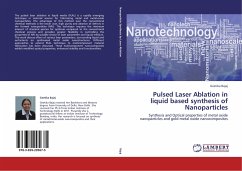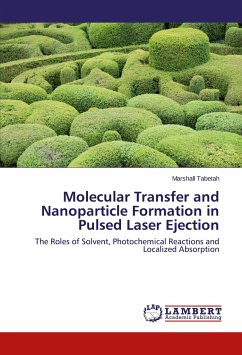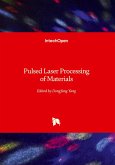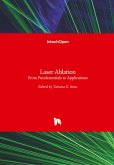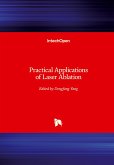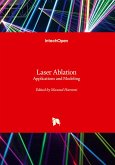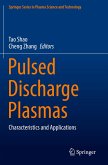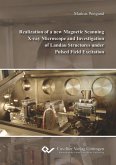The pulsed laser ablation in liquid media (PLAL) is a rapidly emerging technique in material science for fabricating metal and metal-oxide nanoparticles. The advantage of this method over the conventional chemical methods is the lower cost, high purity and absence of defects in the formed nanoparticles (NPs). The technique requires the minimum amount of chemical species for synthesis compared to the conventional chemical process and provides greater flexibility in controlling the properties of NPs by suitable choice of laser parameters and liquid medium. This work discuss effect of various laser parameters, surrounding liquid and surfactants on synthesized metal oxide nanostructures. Different approaches to extend PLAL technique to multicomponent material fabrication has been discussed. These multicomponent nanocomposites exhibit modified optical properties, enhanced stability and functionalities.
Bitte wählen Sie Ihr Anliegen aus.
Rechnungen
Retourenschein anfordern
Bestellstatus
Storno

